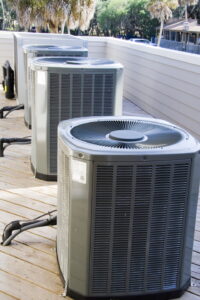
As you take your air conditioner out of “retirement” and start fiddling around to get it up and running, refrigerant probably crossed your mind. Perhaps you’ve dealt with refrigerant leaks in the past, or maybe your system is dwindling in terms of comfort and you think it might be because the system doesn’t have enough refrigerant due to a leak. Either way, it might be time to talk about refrigerant and whether or not you require AC repair in Los Angeles, CA.
Before you scoff at that idea, just remember that an air conditioner might still function with a refrigerant leak, but you’re actively doing harm to it when it does. Leaking refrigerant can shorten the system’s lifespan, cause problems, decrease efficiency, leave your home warmer than it should be, and more.
Our team can help. But first, let’s talk about how you can tell if your system is leaking refrigerant.
How a Leak Occurs
Refrigerant shouldn’t leak from your air conditioner. This is obviously a problem that can occur, but let’s get into the details on how this kind of issue comes up.
Refrigerant lines have to be kept at a specific pressure in order for the material to evaporate and condense. This cycle from evaporation to condensation is what allows the refrigerant to draw in heat from your home and dispose of it outside. If you’ve ever seen a cartoon with a comically squealing boiler, or a gas tank that explodes, you’ll understand why keeping materials at a high pressure can sometimes lead to leaks over long periods of time.
The refrigerant lines that are connected throughout your air conditioning system do come in contact with weathering elements, critters, and sometimes debris carried by the wind. When a pebble or a critter bangs on your system’s refrigerant line that’s keeping this material at high pressures, it’s not unheard of for it to spring a leak.
Detecting a Refrigerant Leak
The important part to take away from this is that you are going to be in charge of detecting a refrigerant leak when it does occur. Here are a few examples that point to a high probability that your system is leaking refrigerant.
- Hissing or bubbling. If you hear your air conditioner make a hissing or bubbling noise, this is usually a sign that refrigerant is leaking. The hissing represents refrigerant leaking out in its gaseous form, and the bubbling represents air bubbles forming in the liquid refrigerant lines.
- Low cooling output. If your air conditioner is providing you with lukewarm temperatures, it might not have sufficient refrigerant to properly cool your home.
- High energy bills. Without the proper amount of refrigerant, your air conditioner could be struggling to provide you with the proper cooling power. This results in inefficiency and high energy bills!
Too often we see homeowners succumb to believing that refrigerant is a fuel source. They mistakenly think that as long as your air conditioner has some refrigerant, then it will work perfectly fine. But without the optimal amount of refrigerant, your system could work a fraction as well as it normally would.
Contact JMS Air Conditioning and Heating for proper AC support.

